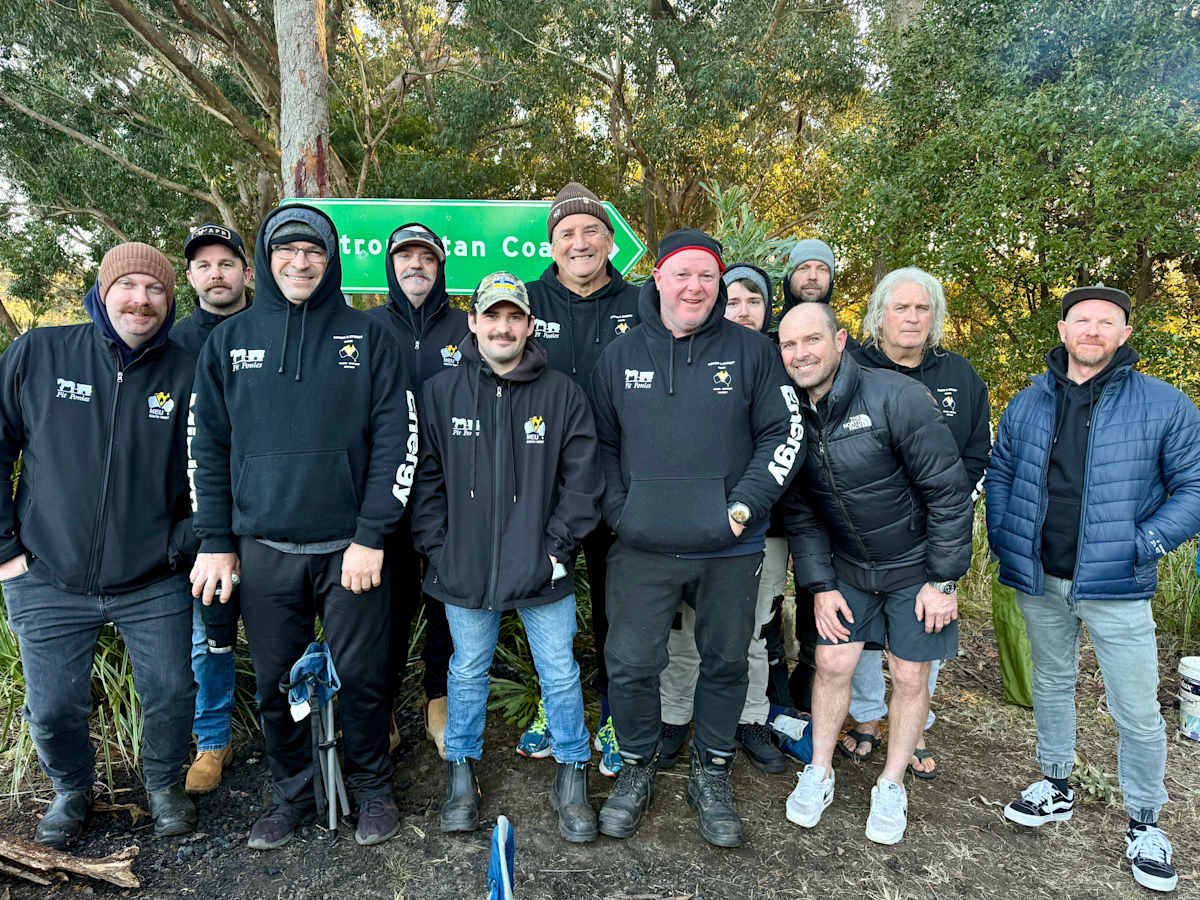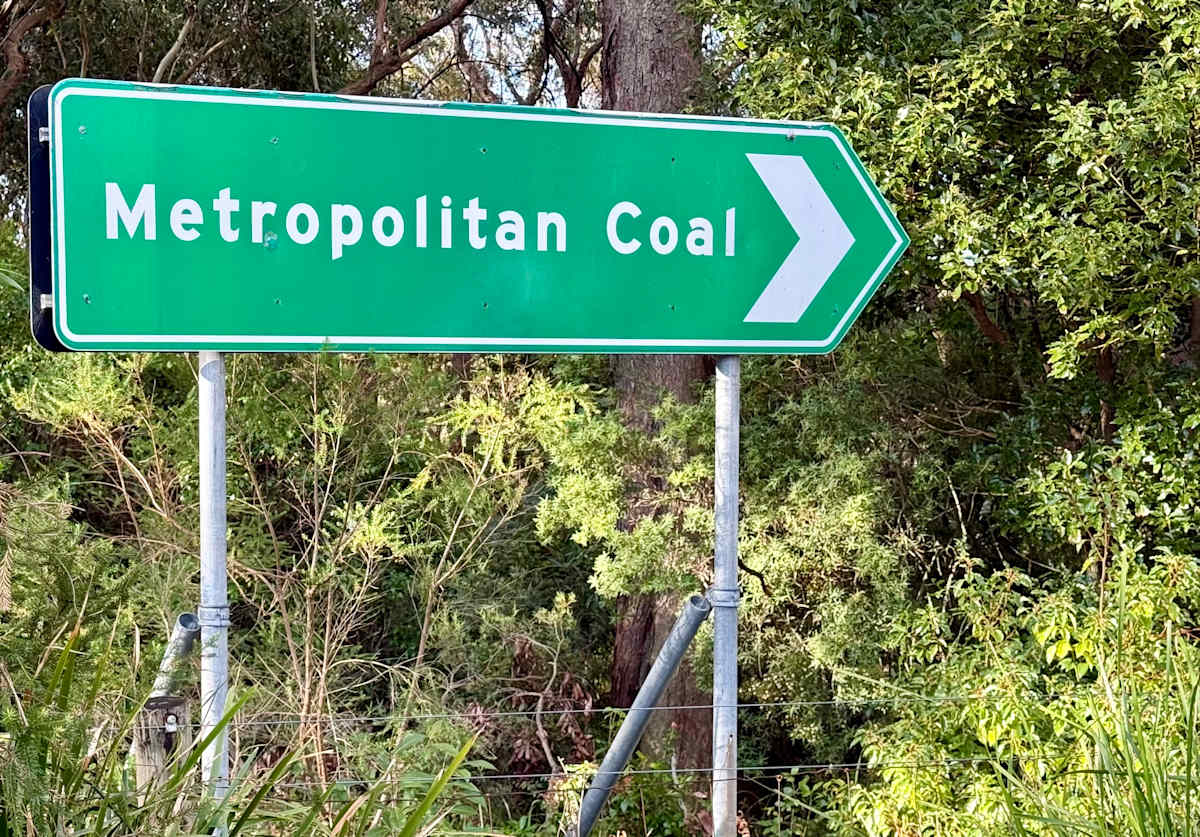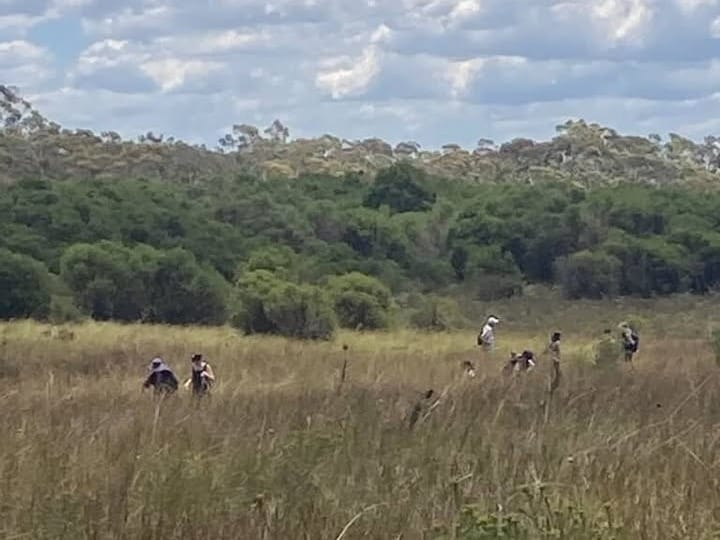Helensburgh miners strike for job security
“If we accept this new EA, they can turn around, replace us with contractors, leave us locked out, and that’s it” – miner Matt Kiely, July 2025. For over a month, local Helensburgh mineworkers have been protesting outside the Metropolitan...

“If we accept this new EA, they can turn around, replace us with contractors, leave us locked out, and that’s it” – miner Matt Kiely, July 2025.
For over a month, local Helensburgh mineworkers have been protesting outside the Metropolitan Mine, near the big sign on Parkes Street. At the heart of the dispute is a key question: Should non-union contract miners be allowed to cut coal on the seams that run deep beneath the region?
The Metropolitan Mine – Helensburgh’s underground coal mine – has been owned by US-based Peabody Energy since 2007. Most production workers are represented by the local lodge of the Mining and Energy Union (MEU), which has been active at the mine for over a century.
About 155 employees are participating in the strike, rotating across four shifts. The night shift mans the picket line from 11am to 5pm. The current shift sits in a circle around a small campfire, cooking sausages on a BBQ for breakfast.
The atmosphere is welcoming. Miners offer breakfast and explain union members have long contributed to local communities, helping to establish hospitals in Bulli and Coledale, as well as pools, parks and halls. “The union is about the community,” they say, “not just the worker.”
Coal cutter Ron Marcinkowski emphasises the region’s deep ties to coal: “Whether you like it or not, coal is entrenched in the area. And a lot of the good stuff in the area is because of coal.”
Ron also reflects on the future of energy and industry: “We should have renewable energy, but to have green steel, you need coal. You need heat. Until the government gives incentives to the big end of town to invest in renewables, it’s not going to happen. Where’s the incentive for Rio Tinto or BHP to pump billions into green energy?
“Coal is not just coal. There’s thermal and there’s metallurgical. Thermal is used to generate electricity; we don’t need that. But to make steel, you need to heat metallurgical coal. Nothing else has been invented yet that can replace it.”
The dispute began in November 2024, when the union started negotiating a new Enterprise Agreement (EA) with Peabody. The Fair Work Commission proposed a wage increase the miners were willing to accept. However, Peabody rejected the proposal, insisting on the right to use contractors for production work.
Under the current EA, a panel-manning clause (also known as a job-security clause) limits the number of contractors on production panels and ensures only MEU-covered workers can cut coal.
Miner Matt Kiely explains the significance: “That’s our job security. So in times like this, when we’re taking protected action, they could just replace us with contractors and carry on as normal. That’s what this picket line is about.”
Currently, the miners remain covered by the existing EA. But Matt warns: “If we accept this new EA, they can turn around, replace us with contractors, leave us locked out, and that’s it.”
The union is also seeking pay rises to bring wages in line with nearby mines. Workers say they earn about $8 per hour less than miners at GM3’s Appin mine for similar work.
Despite months of negotiations and mediation by the Fair Work Commission, the parties remain divided over wages and job security. A Commissioner recommended a pay increase the workers accepted – but Peabody declined, holding firm on changes to the panel-manning clause.
Until the dispute is resolved, you’ll find the miners at Parkes Street from 5am – warming their hands by the fire and offering a sausage or two, if they haven’t all been eaten.

Peabody's view
In response to questions about the EA negotiations, a Peabody spokesperson said: "Metropolitan Coal remains fully committed to ongoing, good faith negotiations with the bargaining representatives, with the aim to get an agreement in place that is acceptable to both the company and our employees."





